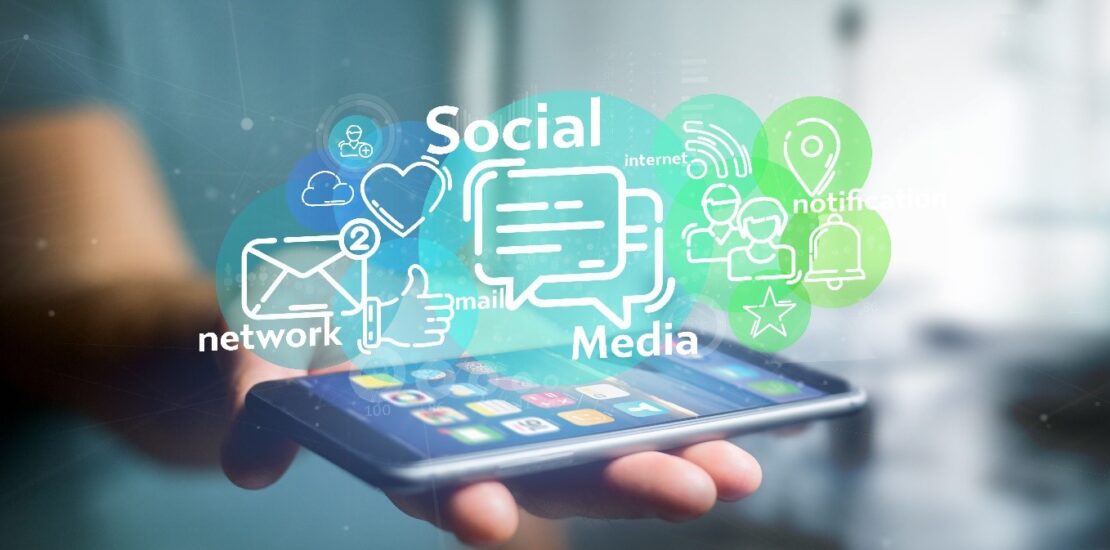- September 19, 2024
- Posted by: GMAS Team
- Category: Blog

In today’s digital age, social media is transforming the way healthcare providers interact with patients. With the rapid shift to digital communication, platforms like Facebook, Instagram, LinkedIn, and Twitter have become essential tools in the healthcare industry, especially for patient education and preventive healthcare. By leveraging the power of Social Media Optimization (SMO) and Social Media Marketing (SMM), healthcare organizations can promote healthy behaviors, raise awareness about health risks, and empower patients with knowledge for early prevention.
This blog explores how social media can be effectively utilized to educate patients on preventive healthcare, the role of Digital Marketing Services in this landscape, and best practices for implementing strategies in healthcare.
The Role of Social Media in Healthcare
In healthcare, it extends beyond simple communication; it serves as a valuable tool for acquiring patients, managing brand identity, and spreading public health awareness. Healthcare providers can harness these platforms to provide patients with critical information regarding preventive care and disease management, helping them make informed decisions about their health.
The challenge, however, lies in navigating the highly regulated nature of the healthcare industry. Healthcare providers must adhere to strict privacy laws like HIPAA in the U.S., making it crucial for organizations to balance effective communication with patient confidentiality. Despite these challenges, those who succeed in SMM efforts help communities thrive and ensure their patients are informed and empowered.
Benefits of SMM for Preventive Healthcare
Healthcare providers who embrace social media are not just connecting with patients; they are shaping the future of public health. Here are a few key benefits:
- Building Trust and Reputation
One of the primary uses of social media in healthcare is to build trust and establish a reputable brand. By engaging with communities through regular posts, healthcare organizations can position themselves as trusted sources of reliable information. SMO can be used to enhance visibility and ensure that when patients search for health information, your organization appears as an authority in the field.
For instance, healthcare providers can use platforms like Instagram and Facebook to share posts about preventive measures for common illnesses, educate the public about the importance of regular checkups, and address frequently asked health questions. When a healthcare organization has a strong and credible online presence, patients are more likely to turn to them in times of need.
- Raising Awareness on Public Health Topics
Public health awareness campaigns play a crucial role in preventing diseases and informing people about health risks. Through SMM, healthcare organizations can distribute timely, factual, and engaging content about various health topics, such as flu prevention, healthy diets, vaccinations, or lifestyle changes that reduce the risk of chronic diseases.
It allows healthcare providers to break down complex health topics into easily digestible and shareable content, increasing the chances of reaching a larger audience. For example, a healthcare organization could use Twitter or Facebook to post reminders about seasonal flu shots or link to blog posts that outline ways to prevent heart disease.
- Combatting Misinformation
One of the biggest challenges in today’s digital landscape is the spread of misinformation, especially during health crises. It can be both a source of accurate information and a medium for dispelling false claims.
During public health emergencies, such as the COVID-19 pandemic, healthcare providers have a responsibility to act as trusted sources of information. Maintaining an active presence allows them to provide real-time updates, mitigate panic, and correct misconceptions. Clear and credible communication via social media can prevent unnecessary anxiety and ensure the public is well-informed with evidence-based advice.
- Improving Patient Engagement and Health Literacy
When utilized effectively, social media can greatly enhance patient engagement and health literacy. Patients are more likely to adhere to preventive healthcare measures when they understand the importance of these actions. Through Digital Marketing Services, healthcare organizations can design campaigns that educate patients about preventive screenings, vaccinations, diet modifications, and exercise routines.
Interactive content like quizzes, polls, infographics, and short videos can make complex medical concepts more accessible. A well-designed infographic on the importance of handwashing, for instance, can quickly communicate essential hygiene practices, reducing the spread of illness.
- Engaging Hard-to-Reach Populations
Social media is a highly effective tool for connecting with communities that are typically difficult to engage. These platforms transcend geographical barriers, allowing healthcare organizations to connect with diverse populations, including rural areas or communities with limited access to healthcare.
With SMO, healthcare providers can create targeted campaigns aimed at specific demographics based on factors like age, location, and health risks. By engaging these audiences in their own digital spaces, healthcare organizations can promote preventive care measures that may otherwise be overlooked.

Effective Strategies for Utilizing Social Media in Preventive Healthcare.
As healthcare organizations embark on their social media journey, it’s important to follow best practices to maximize effectiveness and remain compliant with regulations. Here are some key tips:
- Publish Educational and Timely Content
Consistency is crucial in SMM for healthcare. Providers should post regular content that educates patients on preventive measures and responds to current health trends. For instance, during flu season, providers can share content on the importance of vaccinations or steps to boost the immune system.
Blog posts, health tips, videos, and infographics can be shared to keep patients informed about preventive measures. Health organizations can also engage with their followers through Q&A sessions, webinars, and live chats, allowing patients to ask questions and receive accurate advice.
- Utilize Health-Related Hashtags
Hashtags are a valuable tool for boosting the reach and visibility of your posts. By using healthcare-specific hashtags, you can join larger conversations and make your content more discoverable.
Seasonal health observances, like Breast Cancer Awareness Month, also provide excellent opportunities to promote preventive care measures through targeted campaigns. Digital Marketing Services can help organizations develop the right mix of keywords and hashtags to expand their reach and influence.
- Engage with Followers to Build Relationships
Engaging directly with your followers is essential for building trust and relationships. Respond to comments, address concerns, and encourage conversation around preventive healthcare topics. This helps create a sense of community and encourages patients to feel more connected to their healthcare providers.
For example, hospitals can share patient success stories, feature testimonials, and celebrate milestones. This not only highlights the positive work being done but also inspires other patients to prioritize their health.
- Leverage Social Media for Public Health Crises
During times of crisis, social media proves to be an essential tool. A solid strategy can help healthcare providers respond swiftly, share accurate information, and prevent the spread of panic.
Regular updates during crises such as natural disasters, disease outbreaks, or public health emergencies ensure that patients have access to reliable information when they need it most. It serves as a lifeline for critical health information in real-time.
The integration of Social Media Optimization (SMO), Social Media Marketing (SMM), and Digital Marketing Services in healthcare is not just about staying relevant in the digital age; it is about improving patient outcomes through education, engagement, and prevention. By utilizing social media platforms effectively, healthcare providers can foster trust, raise awareness, combat misinformation, and promote healthier lifestyles across diverse populations. In doing so, they not only improve the well-being of their patients but also strengthen their role as trusted leaders in the healthcare community.
As healthcare continues to evolve in the digital landscape, SMM & SMO will remain a vital tool for patient education and preventive care. The key to success is a thoughtful, strategic approach that balances engagement with compliance, ensuring that patients receive the information they need to lead healthier lives.
